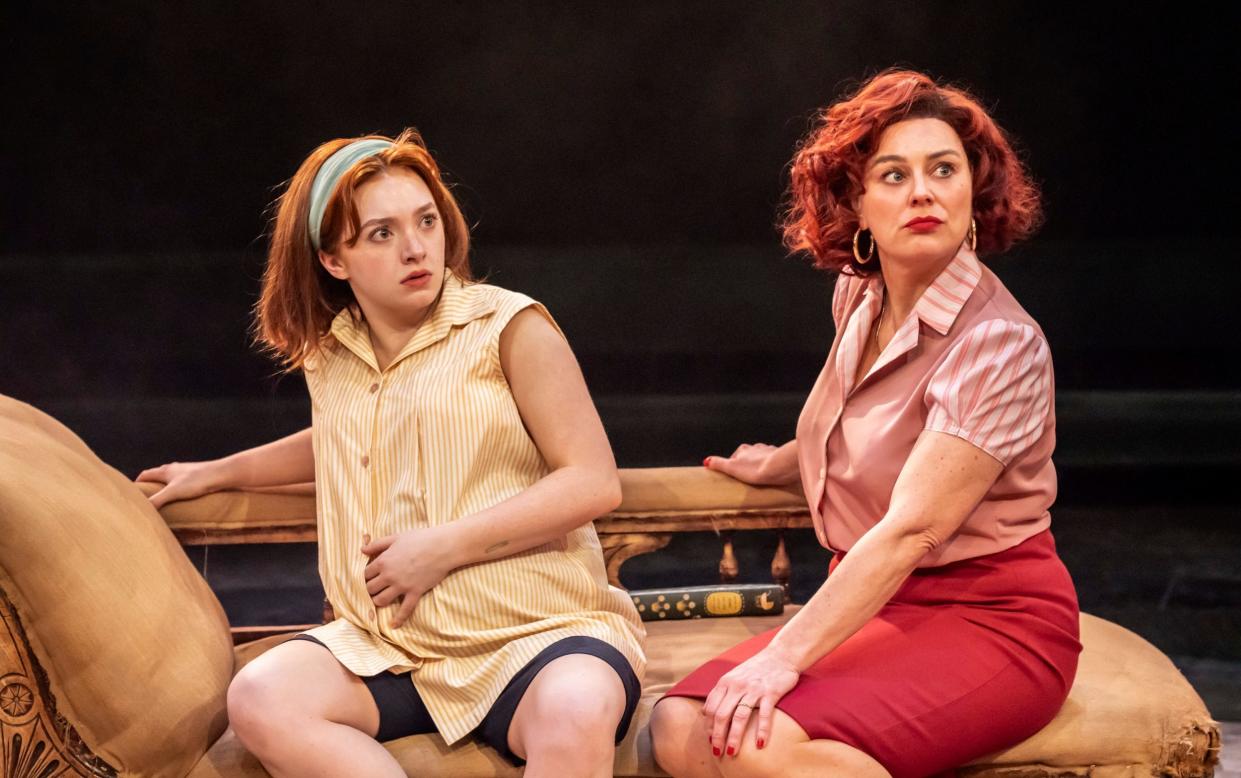A Taste of Honey: performances of great power – even with the cast’s backs to the audience

Set in Salford, Shelagh Delaney’s celebrated drama A Taste of Honey was first staged (at Theatre Royal Stratford East) by Joan Littlewood’s Theatre Workshop in 1958. It isn’t difficult to see why it took an artistic and political radical such as Littlewood to bring the piece to the public stage.
The play portrayed an unmarried 17-year-old white woman getting pregnant by her 20-year-old black boyfriend. Moreover, it featured a positive representation of a gay man some nine years before homosexuality was decriminalised in England. And, if the stage premiere was controversial, the cinema release, in 1961, of Tony Richardson’s film (with a screenplay by Delaney herself) sent shockwaves through British society.
All of which begs the question: why stage it now? Emma Baggott (who directs this new production for the Royal Exchange) seems to offer two equally convincing answers to this question.
Firstly, for all the social progress we have made since 1958, a number of the play’s themes (such as teenage pregnancy) are still carry an undeniable currency. Secondly, A Taste of Honey is a brilliantly written, beautifully structured work of theatre, as worthy of revival as the socially conscious dramas of Ibsen.
An intimate theatre-in-the-round, the Royal Exchange presents a number of problems for both theatre artists and audiences. The most serious of these is that, whichever way they turn, an actor always has their back to a significant proportion of the audience. Designer Peter Butler attempts to solve this with a circular brick road, but there’s only so much cyclical perambulation that one can shoehorn into a drama. With no walls to play with, Butler has to settle for devices such as grilles on the ground, which emit atmospheric light and smoke.
The unforgiving nature of the theatre’s performance space notwithstanding, it is remarkable just how much of the passion and pathos of Delaney’s play is actually conveyed by Baggott’s staging. This is down in large part to a universally excellent cast, led by the superb Rowan Robinson, who has shades of a young Jane Horrocks in her portrayal of Jo, the drama’s vulnerable-yet-steely teenager.
The scene in which Jo finds herself alone with Peter (the nasty spiv who is set to marry Jo’s neglectful mother, Helen) is remarkably potent. Jo’s flirtation with Peter (performed with perfect vulgarity by Andrew Sheridan) oozes contempt, both for Helen and her hideous lover.
Jill Halfpenny’s Helen is suitably monstrous, but with an intelligent, underlying and brittle fragility. There are also fine and sympathetic performances from Obadiah (as Jo’s sailor boyfriend Jimmie) and David Moorst (Jo’s gay housemate Geoffrey).
Singer Nishla Smith – whose renderings of Ewan MacColl’s classic Salford folk song Dirty Old Town top and tail the production effectively – functions as a kind of unobtrusive guardian angel throughout the play. It’s a neat touch that reminds us of the dream-like aspect of a play that is so often considered to be the quintessence of British “kitchen sink” realism.
Until April 13. Tickets: 0161 833 9833; royalexchange.co.uk
